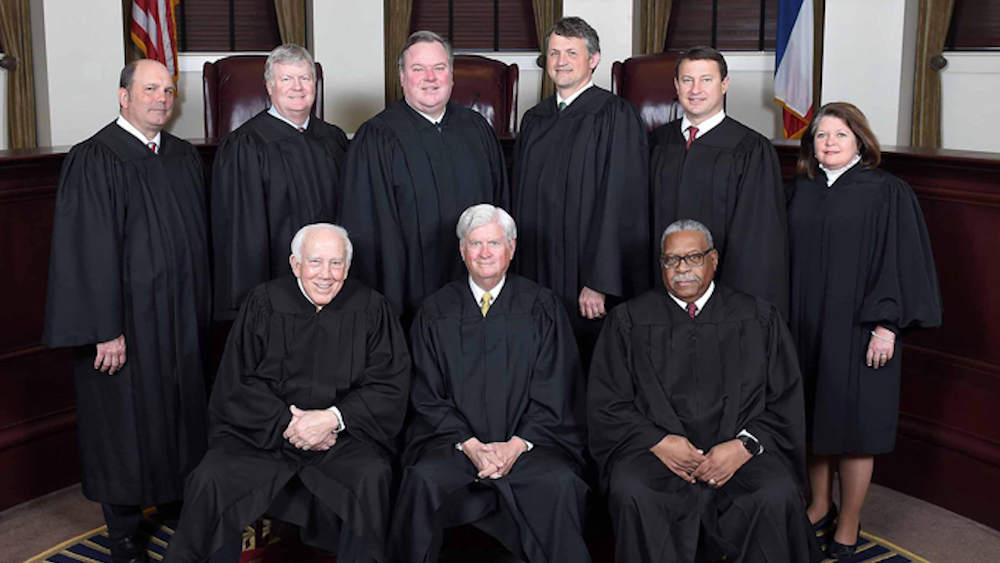Some public money can be provided to private schools after the Mississippi Supreme Court declined to address the constitutionality of the funds 7-2 decision. A public school advocacy group sued the Department of Finance and Administration, State Treasurer David McRae and State Treasurer Liz Welch over pandemic aid dollars.
The Mississippi Supreme Court declined to consider the Parents for Public Schools organization’s argument that Coronavirus State Fiscal Recovery Funds made available under the federal American Rescue Plan Act cannot be allocated to private schools. The court ruled that PPS did not have standing to sue, vacating an order by Hinds County judge Crystal Martin that blocked Midsouth Association of Private Schools’ access to emergency COVID relief funds on behalf of its member schools.
“Because Parents for Public Schools (PPS) has failed to demonstrate an adverse impact sufficient to grant standing, this Court finds that PPS lacks standing to bring this lawsuit. Accordingly, the other issues raised on appeal are moot,” Justice Robert Chamberlain wrote in the ruling.

The decision opens the door for the state Legislature to provide $10 million in emergency relief funds to the Midsouth Association of Independent Schools.
The Liberty Justice Center represented the MAIS in their petition to intervene during February’s oral hearing before the state Supreme Court.
“We are thrilled with the Court’s ruling in favor of Mississippi students at MAIS’s private member schools,” Buck Dougherty, senior counsel at the Liberty Justice Center, said in a statement the Mississippi Free Press received on May 2. “The allegations made by the petitioners against independent schools relied on an unconstitutional and unconscionable Blaine Amendment, historically used to discriminate against racial and religious minorities. The Court was right to set aside the petitioners’ claim and focus on the fact that the money should be used for what the Mississippi Legislature set it aside for independent schools’ infrastructure.”
“Today’s ruling is a win for Mississippi students and schools, and for educational freedom across the country,” Dougherty added.
Associate Justice Dawn Beam wrote in a concurring but separate opinion that today’s ruling is meant only for ARPA funds.
“I write separately to reiterate that we are not ruling on state funds but American Rescue Plan Act (ARPA) funds,” Beam writes in the statement. “… Because these funds were never earmarked by either the federal or state government for any educational purposes, Parent(s) for Public Schools (PPS) cannot claim harm.”
Senior Counsel at Democracy Forward Will Bardwell said the ruling is disappointing.
“In 150 years, the Mississippi Supreme Court has never denied its standing in a case about the Constitution’s school funding requirements,” Bardwell told the Mississippi Free Press on May 2. “So this is an unprecedented moment and a sad moment in this court’s history.”
“This is part of a really concerning years-long practice of the Mississippi Supreme Court ruling against public school children,” Bardwell continued. “The Mississippi Supreme Court has not ruled in favor of public school children in about 40 years, so I hope this is a wake-up call for public school supporters.”
Presiding Justice James Kitchens wrote in the dissenting opinion that Article 8, Section 208, of the state Constitution, forbids funds to be appropriated to private schools that are not free, and challenged the ruling that PPS did not have standing saying the court declined to address the education advocacy’s argument of taxpayer standing.
“The chancery court noted the funding and infrastructure challenges experienced by Mississippi public schools, pointing out several specific infrastructure challenges experienced by public schools, as well as noting that the Mississippi Adequate Education Program has only been fully funded twice in twenty years,” Kitchens wrote. “The chancery court further cited authority regarding the common sense notion that private schools compete with public schools.”
“It is also common sense that good infrastructure can positively impact learning and lead to an advantage, while poor infrastructure can negatively impact learning and lead to a disadvantage,” he added.
Presiding Justice Leslie King concurred with the dissenting opinion.
“I want to be really clear,” Bardwell said. “Two of the justices reached the right result. Justice Leslie King and Justice Jim Kitchens did what the rest of the court should have done, which is attempt to stand in the way of an unconstitutional state expenditure. And the fact that the other seven members of the court didn’t follow Justice King and Justice Kitchens’ example is sad.”
Because this case only involved state law in the Mississippi constitution, the Mississippi Supreme Court gets the final word and there is no other action to be taken, Bardwell said.
“This should have been an easy case,” Bardwell said. “The Constitution clearly forbids what the legislature did here and public school children’s parents clearly have an interest in fighting against attempts to undermine public schools. If the parents of public school children don’t have an interest in fighting efforts to undermine their schools, then who does?”
Clarification: This story and its headline have been updated to clarify that the court did not rule on the use of public funds for private schools, but instead sidestepped the issue by deciding that Parents For Public Schools did not have standing to sue.










